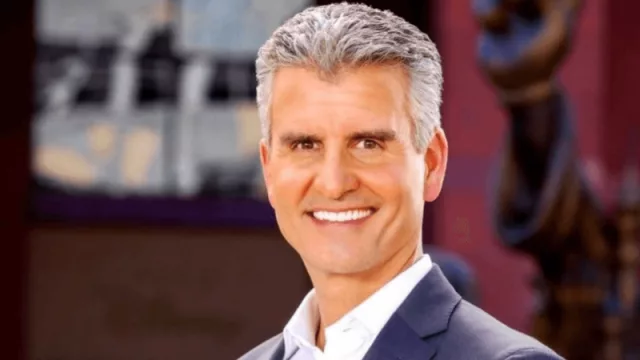-
Both leaders are revolutionizing the discourse surrounding the assertive manifestation of UN bureaucracy and, in many instances, the hypocrisy associated with supporting dictators like Maduro. In a world where politics is in constant flux, interactions among leaders can set the stage for future collaborations and strategies. Today, Presidents Nayib Bukele of El Salvador and Javier Milei of Argentina convened at Casa Rosada in Buenos Aires, in an event that not only celebrates their personal friendship but also aims to forge a robust political and economic bond between their nations—one that holds significant importance for the entire region. This article explores the relevance of this relationship, the implications of their policies, and how this encounter might influence the future of the region. Both leaders advocate for moving beyond militant and ideological hypocrisy in politics to genuinely fight for the progress and freedom of their peoples and societies.
Summary and Key Takeaways
- Strengthening Security: Collaboration on security matters is a central theme of the meeting.
- Commercial Exchange: Opportunities for trade and economic cooperation are on the horizon.
- Human Rights and Critiques: Bukele's security policies have sparked international debate.
The Importance of the Meeting
The meeting between Bukele and Milei is significant not only due to the current context of each country but also for its potential to establish a governance model that challenges traditional norms in Latin America. Both leaders have been characterized as disruptive figures seeking to reform their political and economic systems.
The Floral Offering: A Symbol of Respect and Friendship
Bukele's visit to Argentina began with a symbolic act at Plaza San Martín, where he laid a floral offering. This gesture honors Argentina's history while establishing a tone of respect between both countries. Bukele remarked that it “will be an excellent meeting” and that they “will discuss many important issues, including energy, trade, and security.” This underscores the intention to cultivate open and constructive dialogue.
Security Strategies: A Common Axis
One of the pivotal topics on the agenda was cooperation in security matters. Bukele's tough-on-crime policies have garnered praise in El Salvador for reducing crime rates. However, they have also attracted criticism for alleged human rights violations. In this context, collaboration with Milei could provide a replicable model for other countries facing similar challenges.
Illustrative Example:
In 2023, El Salvador implemented a state of emergency that allowed the arrest of thousands of suspected gang members in a short period, perceived as a success in crime reduction but also raising international concern.
Commercial Opportunities: Looking to the Future
Beyond security, the meeting opens the door to new commercial opportunities. Both presidents have expressed interest in fostering more robust trade relations. With a focus on energy and commerce, this encounter could serve as a catalyst for an agreement benefiting both nations.
And What About the Tech Sector?
It is vital for Argentina that unions, the opposition, and statists cease pursuing outdated policies that hinder the country's and the region's progress. Does Argentina still lack an international agenda for macro tech development? What about international tech fairs, tax incentives for the sector, attracting foreign companies, and fostering startup installations?
The City of Córdoba: Is it to become the “Silicon Sierras” that it has yet to be, by failing to think strategically outside the closed political frameworks of parties, unions, ideologies, and outdated labor and tax laws, and lacking a macro strategic development plan for the next 10 to 20 years that is fundamentally international? In terms of real estate and tech investments, Argentina, in addition to Mendoza (wines) and Vaca Muerta (energy), has Jujuy, Salta, La Rioja, and San Juan (minerals) as valuable assets. We refer specifically to Córdoba, a province with immense potential in tech human resources and culture, which could become the Florida of theme parks, the Madrid of museums and historical centers, and the Ireland of the tech world—something that El Salvador is already beginning to achieve.
The Need for Strategic Planning in Every Sector of Argentina with a Head of Culture
Relevant Data: Argentina is a country rich in natural resources, and El Salvador, with its growing digital economy, could benefit from technological and commercial exchange.
A Promising Future
The meeting between Nayib Bukele and Javier Milei is significant not only for the immediate impact it may have on their respective nations but also for what it represents for Latin America as a whole. The possibility of establishing a strategic alliance between two countries that challenge the status quo could influence the political and economic future of the region.
The combination of firm security policies and a focus on trade could serve as a model for other countries seeking to break free from political inertia. However, it is crucial for both leaders to maintain a balance between security and respect for human rights to ensure that their policies are not only effective but also just.
Frequently Asked Questions (FAQs)
What impact will this meeting have on security in Latin America?
Collaboration on security between Bukele and Milei could establish a model for other countries facing crime issues, although it is also important to consider human rights in these policies.
How could the economies of both countries benefit?
Commercial exchange in sectors like energy and technology could strengthen the economies of both countries, offering new opportunities for investment and development.
What are the main criticisms of Bukele's policies?
Bukele's hardline policies have faced significant criticism, particularly regarding allegations of human rights violations. International organizations have expressed concern over the increase in indiscriminate arrests and the lack of due process in the judicial system. Despite achievements in reducing crime, the debate over the ethics and legitimacy of these measures remains a hot topic.
What role does the international community play in these policies?
The international community, including organizations like the UN and human rights groups, has been vigilant regarding Bukele's actions. This includes highlighting the need for a balanced approach that prioritizes both security and the protection of human rights. The response of the international community could influence how other countries address similar issues.
What does the meeting mean for bilateral relations between El Salvador and Argentina?
This meeting marks a significant step toward strengthening bilateral relations between El Salvador and Argentina. Cooperation in security and trade could open new avenues for development and stability between both countries, setting a precedent for future collaborations in the region.
How is Milei perceived in this context?
Javier Milei has been welcomed as a leader who challenges traditional political norms in Argentina, with rhetoric that resonates with an electorate tired of corruption and inefficiency. His focus on a market economy and reducing the size of the state makes him an attractive ally for Bukele, who is also seeking to implement bold reforms in his country.
Final Reflection:
The meeting between Nayib Bukele and Javier Milei is more than just a simple gathering of leaders; it symbolizes a shift in the political paradigm of Latin America. The possibility of creating an alliance based on security and trade offers new hope for those seeking effective solutions to persistent problems in the region. However, it is crucial that this collaboration does not become a pretext to ignore human rights or adopt measures that could harm the societies of both countries. The true test of this alliance will be its ability to balance security and justice, ensuring that progress does not come at the expense of human dignity.
-
Citizens of Latin America, especially those in Miami and other cities with a large Anglo-Latin population, must stay informed and engaged with these issues. Active participation in political and social discourse is essential to shape the future of the region. Ultimately, the story of Latin America is written not only in government offices but also in the streets, homes, and everyday conversations of its people.
With this landscape, expectations are high. The international community is watching closely, and the collaboration between Bukele and Milei could serve as a model for a new approach to Latin American politics. The key will be how both leaders manage the challenges ahead and whether they can build a legacy that prioritizes the well-being of their citizens.
-
Infonegocios RED: 4.5 million Anglophone Latinos reading business news daily.
-
Sign Up for Free: Register and receive our newsletter by simply leaving your email and name here. (https://infonegocios.miami/suscribite-al-newsletter)
-
Contacts: [email protected] or [email protected]
-
IG: @infonegociosmiami












Tu opinión enriquece este artículo: